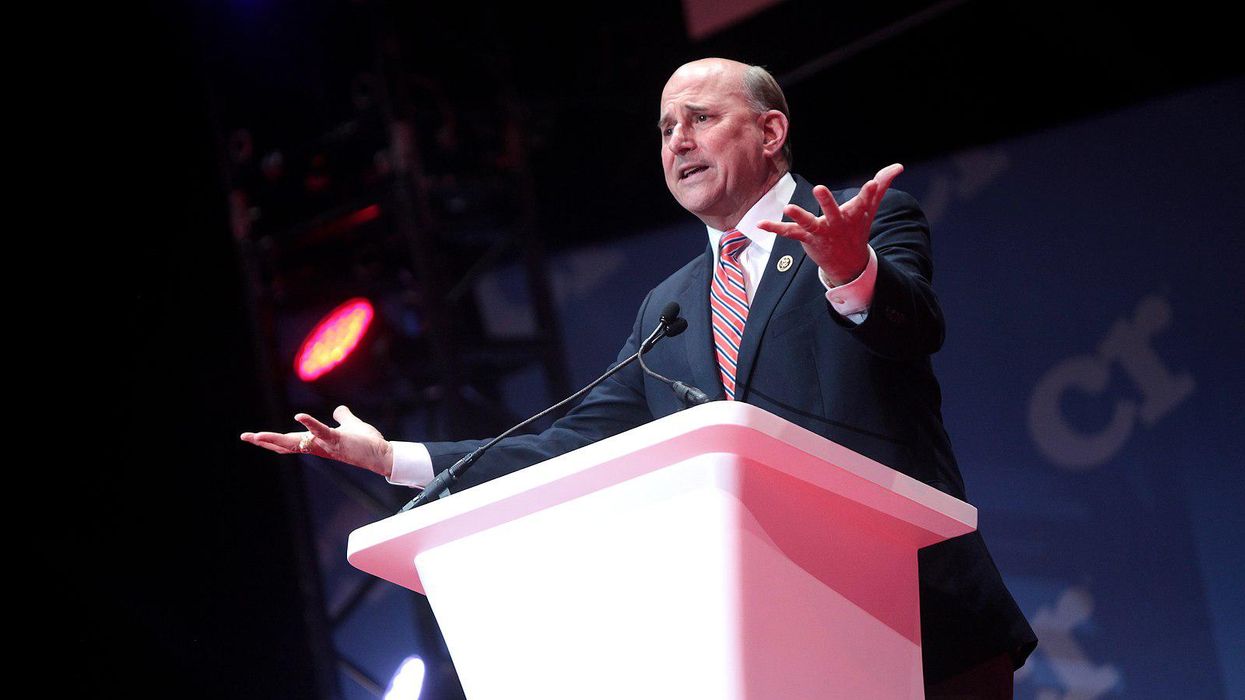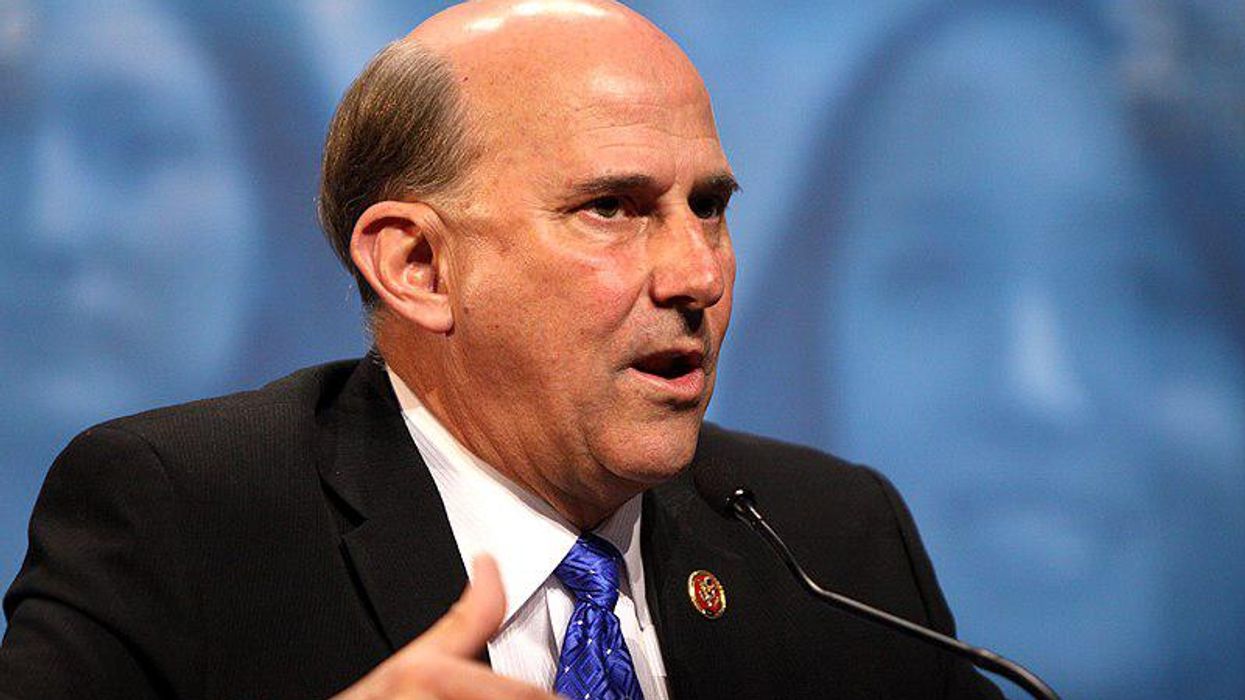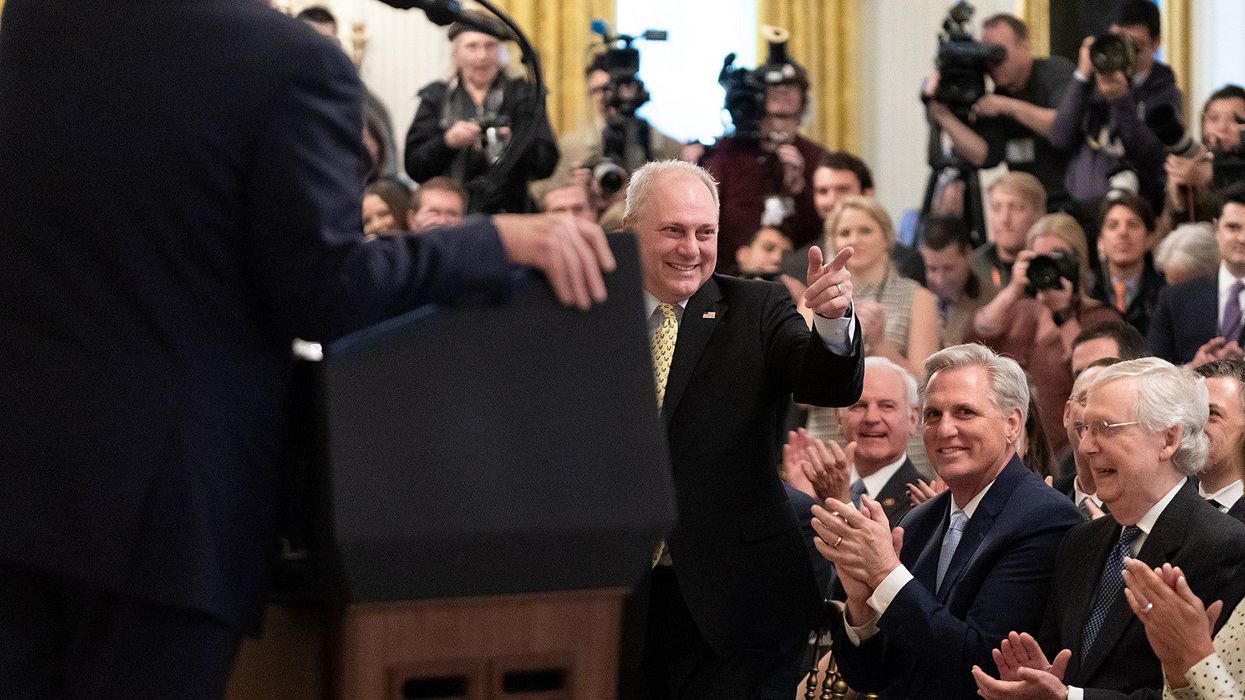Reprinted with permission from Alternet
EDITOR'S UPDATE: On Wednesday evening the House passed a bipartisan bill to establish an independent commission to investigate the January 6 Capitol insurrection, as 35 Republicans defied their party leadership and former president Donald Trump to support the commission.
.The bill now moves to the Senate where it faces an uncertain fate as Minority Leader Mitch McConnell announced his opposition on Wednesday. Republican House Minority Leader Kevin McCarthy announced on Tuesday that he will not be supporting the bipartisan deal for a commission to study the January 6 insurrection at the U.S. Capitol. And not only that, but the No. 2 Republican in the House, Rep. Steve Scalise, revealed that he'll be whipping Republican votes against the legislation.
It was a disappointing but predictable development for those hoping to have bipartisan consensus on the plan to analyze the monumental challenge to American democracy. With the right wing increasingly downplaying the events of January 6 and former President Donald Trump's attempts to overturn the 2020 election, or even defending them, it was clear Republican leadership had little interest left in seeking accountability. While legislation for the commission is almost certain to pass the House because of the Democrats' majority, it faces a less certain future in the Senate, where it will need 60 votes. Senate Minority Leader Mitch McConnell said Tuesday he is undecided on the legislation.
In turning his back on the commission, McCarthy was essentially throwing one of his own under the bus. Indeed, this is exactly the sentiment New York Republican Rep. John Katko reportedly expressed to a colleague about the development, according to a recent report in The Hill.
"Katko feels like he's been thrown under the bus," the person said. "I think he feels frustrated he was given a direction to go in and had the rug pulled out from under him."
Katko is the top Republican on the House Homeland Security Committee. He was, it seems, given an impossible task: to negotiate a deal with Democrats on a commission that McCarthy and most the GOP caucus was bound to end up opposing.
McCarthy was initially outraged by the events of January 6, pinning the blame on Trump even as he opposed impeachment. But Republican voters have clearly signaled they don't want Trump held accountable, and they're unconcerned with the insurrection, so McCarthy has dutifully abandoned any interest in the commission.
In a statement released by Scalise, the House GOP leadership offered a series of excuses for their opposition to the commission, trying to put the blame on Democrats and Speaker Nancy Pelosi. But the objections were frivolous.
The first three bullet points here are all basically the same point: that the commission only focuses on the events of January 6. That is, of course, the whole point of the legislation. The idea that the 2017 baseball shooting is suddenly among McCarthy's concerns strains credulity, and it has no credible link to January 6 attack. But if it did, nothing would prevent the commission from studying the link. (And if McCarthy had thought the event itself was worthy of study, he could have proposed that back in 2017.)
The point that the report is "due to late" is hard to parse even on its own terms.
The last two points just refer to other investigations of the events, such as in the DOJ and congressional committees, which serve different purposes from an independent commission. Notably, they're run ultimately by Democrats, while the commission is intended to be bipartisan.
Ultimately, the GOP's talking points against the commission just amount to an admission they don't want a commission at all. It's clear there was no reasonable agreement that would satisfy them, unless perhaps it was so watered down as to be pointless. And of course, they use the delay imposed by the negotiations they insisted upon as another reason to oppose the commission.
So why go through all this song and dance? McCarthy perhaps concluded that it would look too cynical to just oppose a commission outright, or mayube he genuinely wanted a commission at the start and changed his mind.
But the attempt to blame Democrats for the failure is falling flat. The arguments against the commission are laughable. And without a doubt, some House Republicans will vote for the commission, just as some voted for impeachment, giving it a seal of bipartisanship even if McCarthy is opposed. It's hard to imagine how the House minority leader's reputation comes out improved after all this.
Democratic Rep. Jim McGovern blasted McCarthy for abandoning the agreement after all the negotiation:
And according to Punchbowl News, many Republicans aren't impressed with McCarthy's excuses, either.
"Sure, there are some Republicans who can toe the line and say that they will oppose it because it doesn't allow for an investigation into all political violence," it reported. "But many in the party are finding that excuse incredibly lame."












